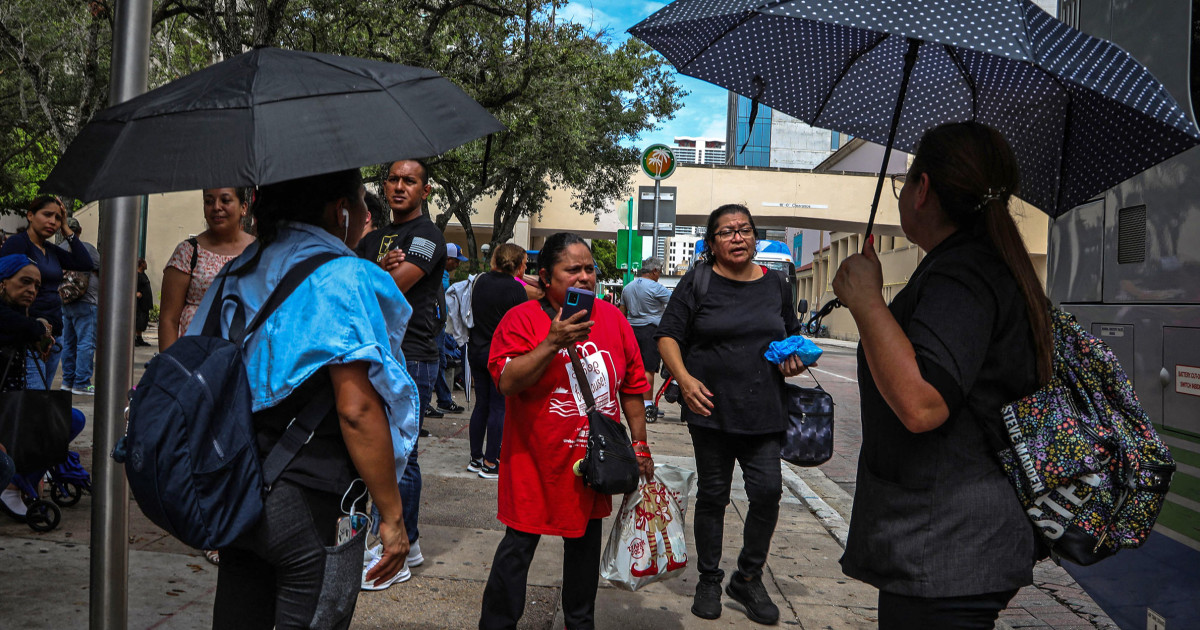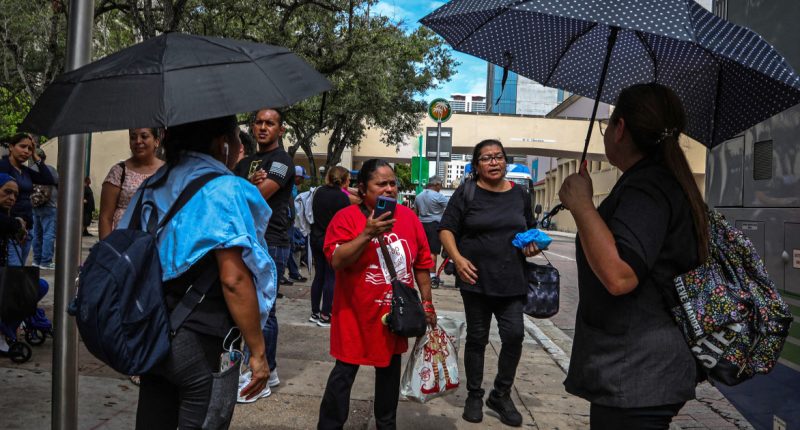
Florida’s Senate on Tuesday approved a bill that would ban cities and counties from adopting requirements for mandatory water breaks and other workplace protections against extreme heat.
The Republican-controlled Senate voted 28-11, along party lines, to pass Senate Bill 1492, which would prohibit local governments from determining workplace heat standards that go beyond those required by federal law. In effect, the bill would strip cities and counties of the ability to require water breaks for workers and time to rest in the shade throughout the day.
The state legislation comes after the planet notched its hottest year in recorded history in 2023. Nearly the entire southern portion of the United States last summer suffered weeks on end of oppressive humidity and triple-digit temperatures in a series of long-lasting heat waves that climate scientists said were intensified by global warming.
Supporters of Senate Bill 1492 said the measure will help establish uniform regulations, rather than having rules applied inconsistently across the state.
But labor organizations have said workplace heat standards are necessary to keep people safe, particularly for individuals who work in construction, agriculture and other industries that require them to be outside.
Similar legislation was passed last year in Texas, as part of a state law that limited local governments from, among other things, establishing ordinances for mandatory water breaks and time in the shade for outdoor workers.
Heat causes more deaths in the U.S. each year than any other weather event, according to the National Weather Service, and outdoor workers are among those most vulnerable to heat-related illness and death when temperatures spike.
In addition to water and shade breaks, the local heat protections banned under Senate Bill 1492 would include heat-exposure training programs, protections for employees who report issues related to excessive heat exposure and record-keeping requirements related to heat exposure.
Under the state legislation, businesses would follow general rules set by the federal Occupational Safety and Health Administration. While the agency recognizes extreme heat as a workplace hazard, OSHA has not yet issued specific federal rules to protect workers from dangerously high temperatures.
The bill awaits final approval in the House before heading to Gov. Ron DeSantis. If signed into law, it would take effect July 1.
Source: | This article originally belongs to Nbcnews.com








